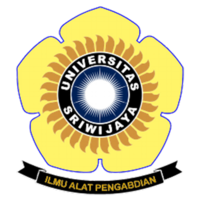Biosorben Tongkol Jagung Untuk Mereduksi Logam Fe Pada Irigasi Sawah Disekitar TPA Pakusari Jember
Abstract
Fadilah, S.N., & Arimbawa, I.M., (2023). Corn Cob biosorbent for reducing fe metal in rice field irrigation around TPA Pakusari Jember. In: Herlinda S et al. (Eds.), Prosiding Seminar Nasional Lahan Suboptimal ke-11 Tahun 2023, Palembang 21 Oktober 2023. (pp. 439-446). Palembang: Penerbit & Percetakan Universitas Sriwijaya (UNSRI).
Water sources that are close to landfills have the potential to be polluted by leachate from landfills and if it enters rice field irrigation channels, it will pollute agricultural products. This study aimed to determine the potential of acid-activated corn cob adsorbent in absorbing Fe metal in rice field irrigation water sources around Pakusari Jember landfill, as well as the effect of acid addition and activation time on adsorbent absorption. The research was conducted using nitric acid activator with variation of activation time ranging from 1 - 4 hours. The effect of acid activation time on mass gain and Fe content of adsorbent was analyzed using analysis of variance (ANOVA). The results of this study indicate that acid-activated corn cob biosorbent causes the number of active sides on the adsorbent to become more so that after activation it is able to absorb metals. Activation time for 2 hours is the most optimal variation because it absorbs Fe metal with the highest level of 2.14%. At 3 - 4 hours of activation, the desorption process occurs so that Fe levels are lower. All four samples have Fe levels that exceed the Ministry of Health's recommendation so it is recommended to do water treatment first before being used for irrigating rice fields.
Keywords
Full Text:
PDFArticle Metrics
Abstract view : 142 timesPDF - 160 times
Refbacks
- There are currently no refbacks.

